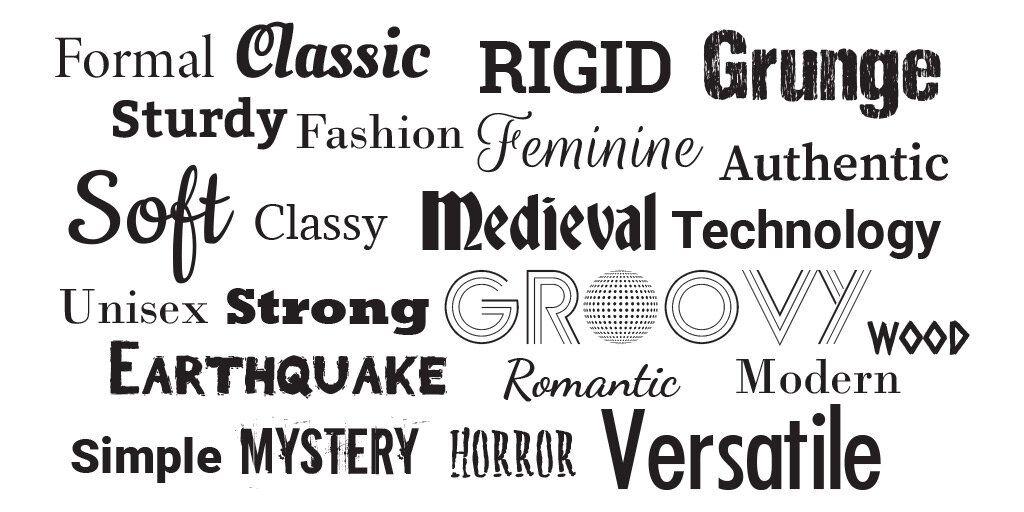Brand typography is a visual component of a brand’s style guide or book that organises and aligns your company’s written copy with your brand’s personality. While they are all closely related, brand typography differs from font or typeface. So, let us introduce you to the types of branding fonts and understand their distinctive personalities:
- Typography is the set of characteristics that enhance a company’s design, brand voice, and personality across both digital and traditional channels
- A typeface is a designation given to a group of similar fonts
- Fonts are the components that make up a typeface, such as weights, widths, and styles
Serif Fonts
These are the oldest types of fonts, featuring little feet at the tops and bottoms of each letter that are referred to as serifs. These tiny flourishes came from painters’ brushes and were used as decorative accents on the letters.
Personality: Serif typefaces are popular among businesses that want to project a beautiful, sophisticated image. These types of logos exude tradition, dignity, and dependability.
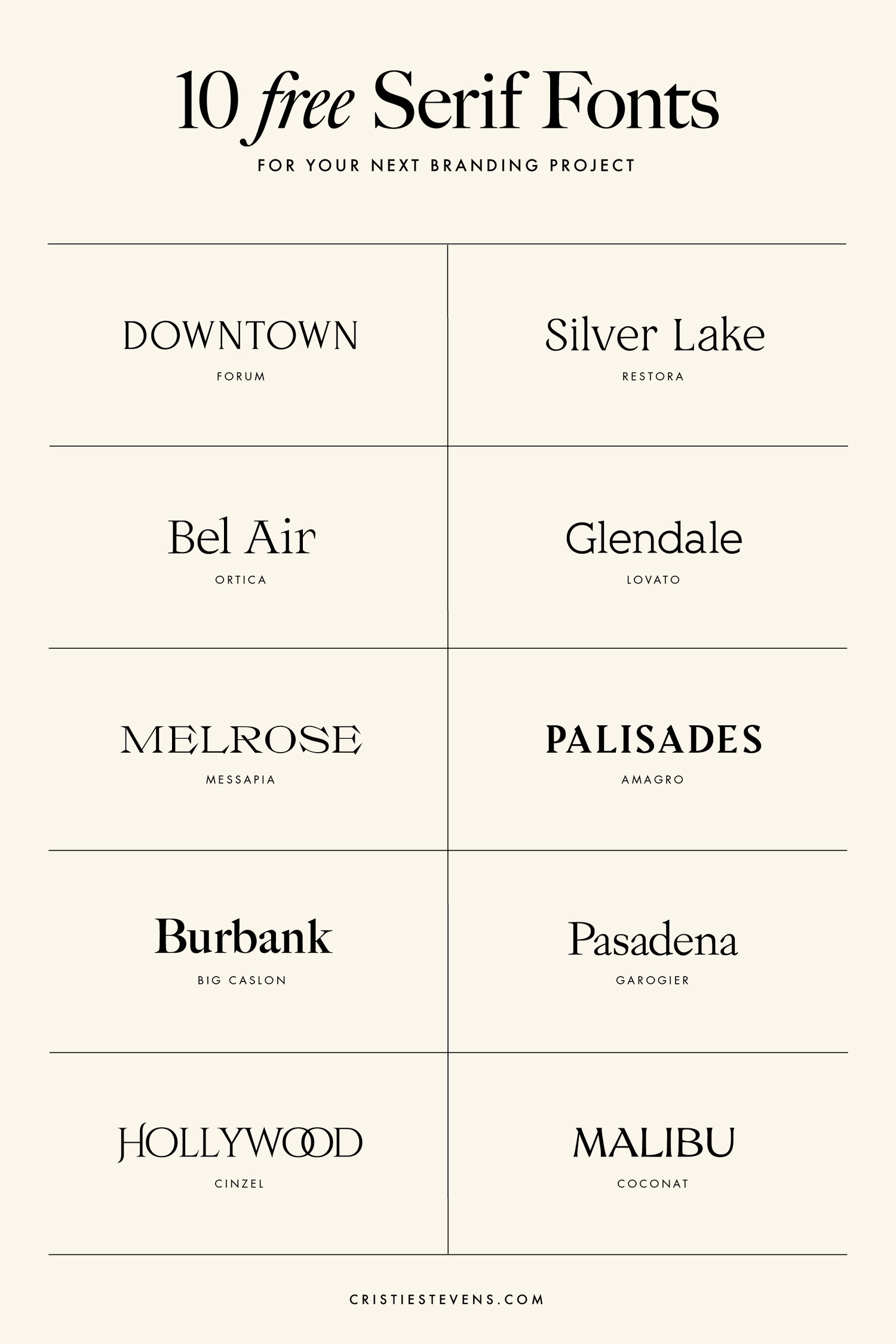
Sans Serif Fonts
The clean, straight lines of the Sans Serif fonts define them. They lack embellishments and stress legibility and simplicity for a more scalable appearance.
Personality: These fonts have a simple, no-nonsense appearance. They stress clarity with a forward-thinking attitude, yet because of their polished and efficient design, they can also be bold and employed as attention-getters.
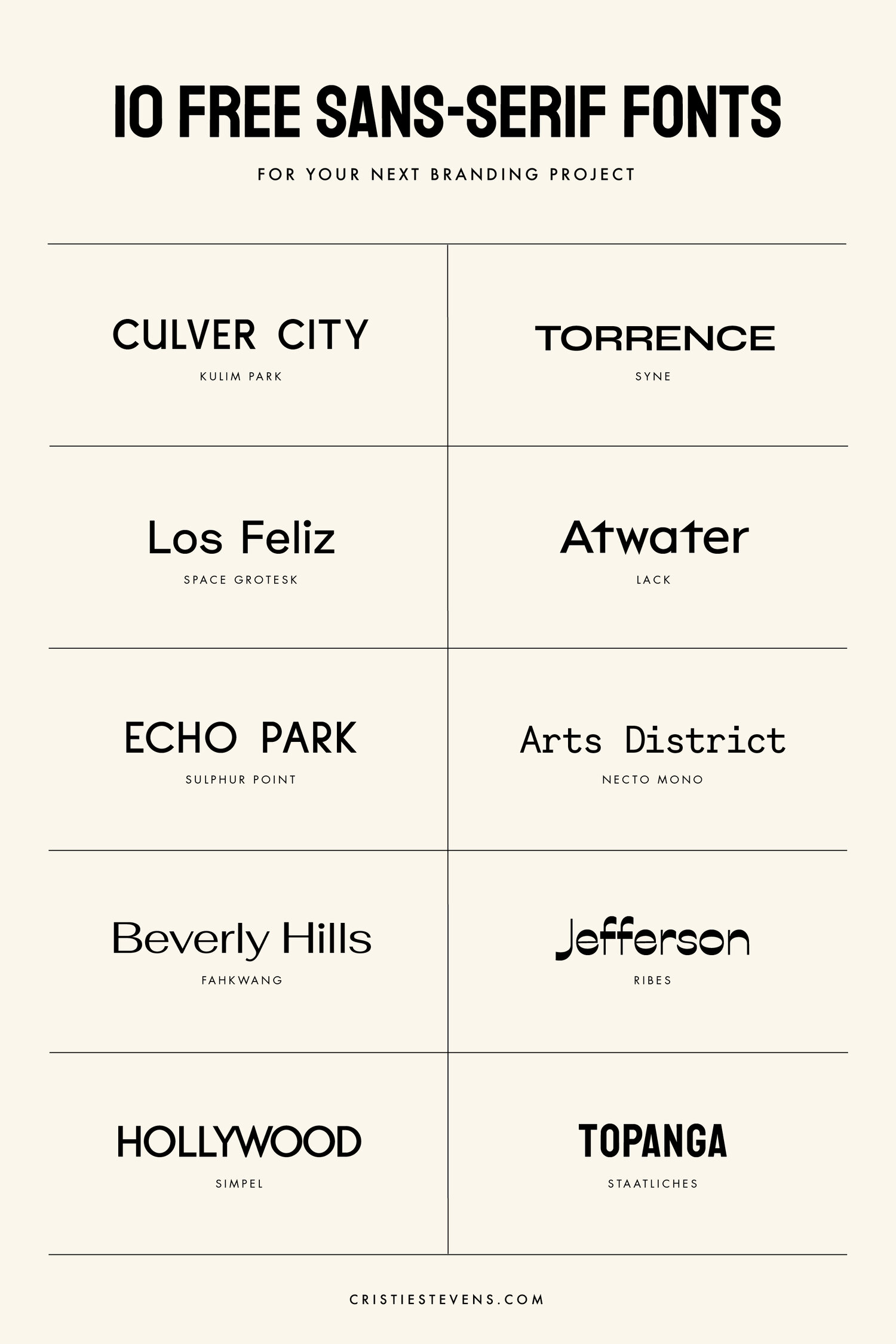
Slab Serif Fonts
These fonts are known for their solid and bold approach and are more popular with modern brands than classical ones. They can be either rounded or angular, with some closely resembling typewriter styles.
Personality: These fonts create a loud, bold image. They showcase a sense of confidence, reliability, and creative thought owing to their heavy lines and less delicate serifs.
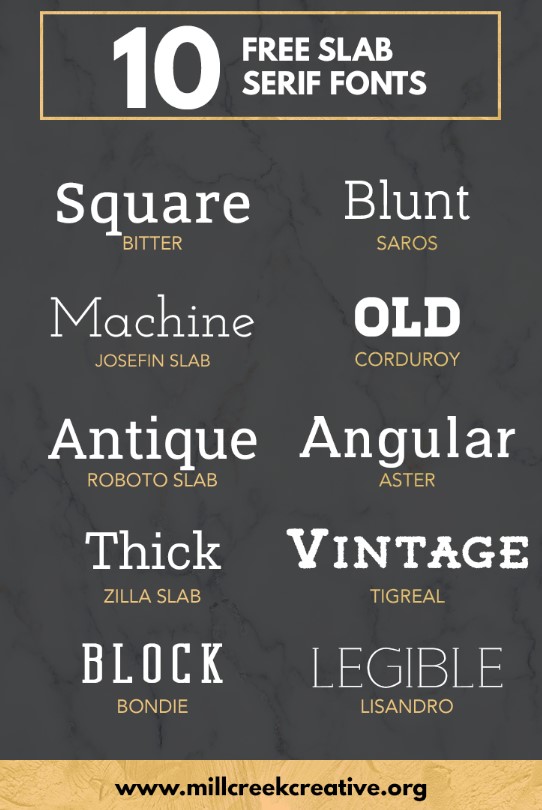
Script Fonts
The flourishes were significantly reduced in casual script styles. These typefaces likewise forego the blocky print appearance in favour of a more natural-looking cursive form. These scripts are intended to mimic handwritten calligraphy.
Personality: Script fonts, in general, create feelings of elegance, inventiveness, independence, and femininity. Their curved and flourishing forms imply a more hands-on, intimate approach to business and are ideal for conveying a sense of unique and artistic thought.
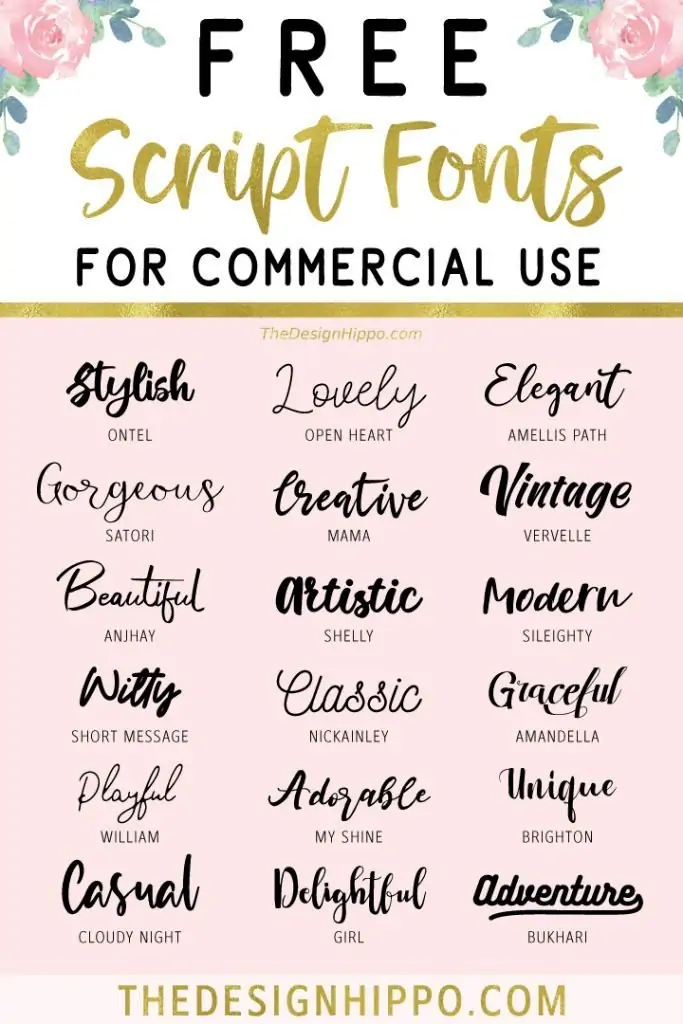
Decorative Fonts
These fonts forego conventions in favour of a distinct and beautiful typeface. Because they are often adapted to individual firms, most ornamental types are effective for a wide range of sectors and demands.
Personality: These fonts, in general, convey individuality and accentuate originality. A sensation of casual, fun, and creative thought are some of the most prevalent emotions generated. They can also elicit culturally unique memes, as well as qualities or themes reminiscent of a given time period. They are among the best typography for logos.
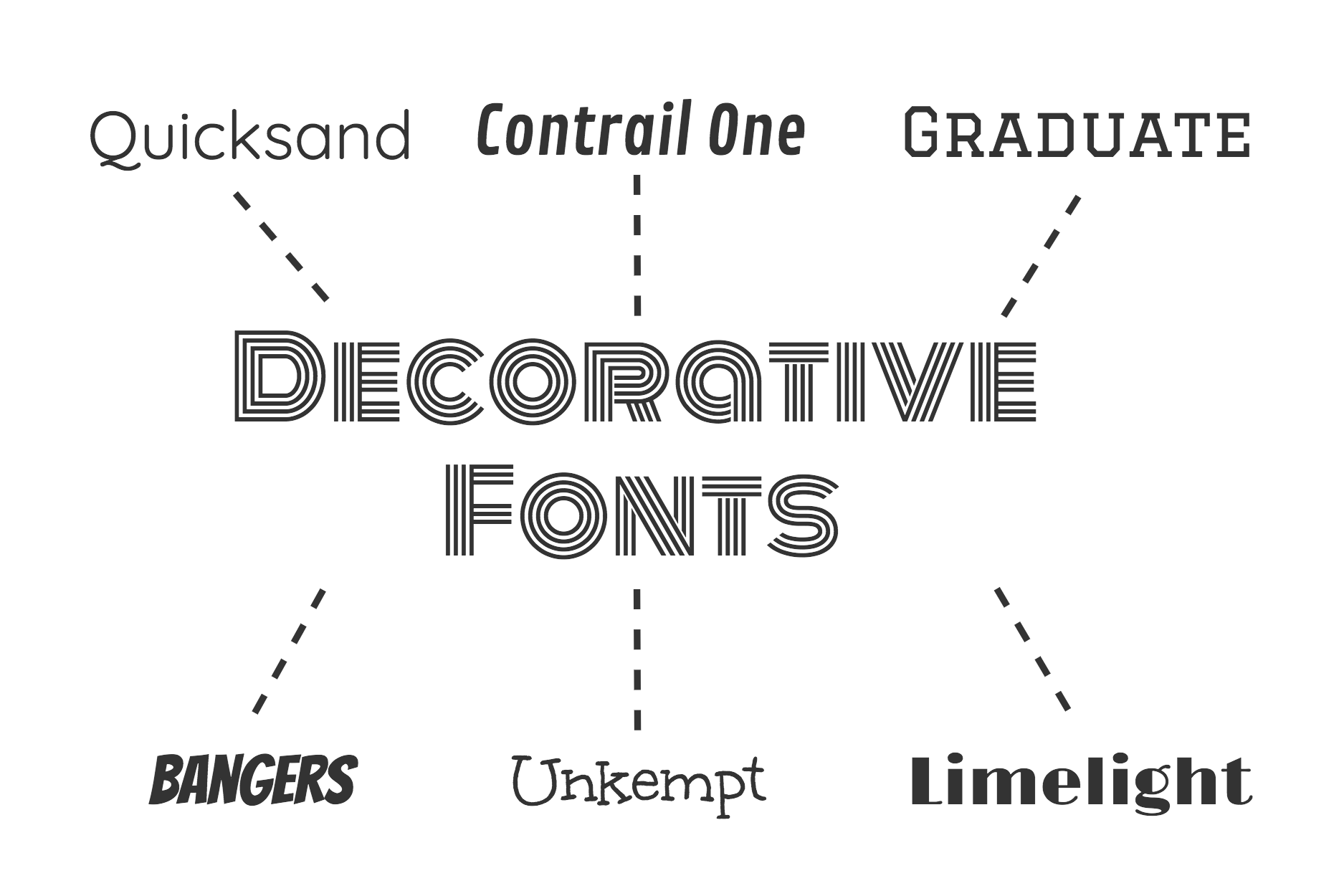
Importance of Brand Typography
People view your brand through words in a variety of settings. It is an experience for a customer to see a message on your television advertisement, view your internet page, or look at your product’s name. Delivering an outstanding customer experience through your products or services is crucial to a strong brand image.
Brand Typography Conveys Meaning
As clothing fads vary, so does typography. Thus, the choice of typefaces should never be influenced by what is trendy in the design industry. Whatever typeface you select should be meaningful and creative.
Brand Typography Changes Perceptions
The typographic effects have a significant impact on consumer perception. With enhanced technology, how people connect with social media has radically changed, implying that a rising amount of content is consumed through screens and adaptable technologies.
Brand Typography Sets the Mood
Users may be drawn in by the image, but it is crucial to remember that typefaces have both direct and indirect effects on people, so they should be acceptable in order to represent the true essence of a business. The choice of typeface has a hidden meaning that plays a significant impact. A font can evoke emotion, improve theme, pique attention, associate personality, and even convey trust, all of which are crucial to the successful launch of a project.

Rahul Shevde
